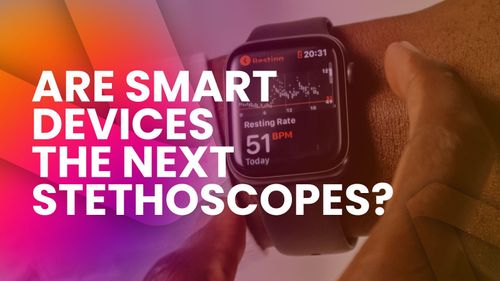
Quantum startups have become one of the primary engines pushing quantum innovation forward. Quantum startups are better positioned than legacy players to be agile, and because quantum technology is still at a somewhat early stage of development, these startups are helping define its future.
Tech events such as VivaTech play a special role in the emerging quantum ecosystem. VivaTech brings startups, investors, industry, research institutions, and government actors together all in one place. For emerging quantum technologies, this is especially helpful for building visibility and connections.
Startups Showcasing Quantum Breakthroughs
Among the quantum startups who made waves at VivaTech 2025, several stand out for their unique approaches and solutions. Here are some of the leading quantum startups you can find at VivaTech:
Quandela
Quandela is a European leader in photonic quantum computing, in which individual particles of light (photons) are harnessed to act as a qubit, the fundamental unit of quantum information. In 2025, Quandela launched Belenos, which it calls the world’s most powerful photonic quantum computer to date. The startup is building scalable photonic quantum computers but also offers a full cloud-accessible stack and industrial algorithms.
At VivaTech 2025, Quandela showcased its groundbreaking technology and also announced a partnership with the software company AdvanThink aimed at transforming payment fraud prevention.
Pasqal
Another European heavyweight in quantum computing startups, Pasqal builds quantum processors from neutral atom technology – an approach to quantum computing that uses individual, laser-cooled neutral atoms as qubits.
During the VivaTech 2025 session The 3 W’s of Quantum: Who’s Ahead, What’s It About, and Why Should You Care?, Pascal CEO Loïc Henriet shared his vision of how quantum startups are maturing: “We’ve switched from an era of R&D where you really wanted to show that lab devices were performing something more efficiently than classical, but it was not something useful. It was like a random task. And now we’re switching to an approach where we want to tackle use cases that are important and business-related, and it’s really the goal of the entire industry toward industrialization. I think it’s really what matters now, and when we talk about quantum advantage, it’s really with that perspective in mind.”
Alice & Bob
This startup is focused on one of the biggest challenges in quantum computing: error correction. Based in Paris and Boston, Alice & Bob aims to create the first universal, fault-tolerant quantum computer. This focus on stability is crucial, because without it, quantum devices cannot scale to meaningful problem-solving capacity.
The CEO and co-founder of Alice & Bob, Théau Péronnin, shared his perspective on how to tackle quantum computing’s challenges during a session at VivaTech 2025 titled Beyond the Qubit: Realities of the Quantum Revolution. He also gave the keynote at a workshop focused on Deeptech in France. Access to the brightest minds in quantum computing, like Péronnin, is a major reason to attend VivaTech in Paris.
Multiverse Computing
Focused on the software and applications side of quantum, Multiverse Computing shows how quantum tech companies can deliver value today, even before large-scale hardware arrives. Based in Spain, Multiverse combines quantum computing, AI, and optimization to solve complex optimization, simulation, and risk management challenges in the industries of finance, agriculture, logistics, energy, and more.
At VivaTech 2025, Multiverse Computing showcased its cutting-edge Quantum AI technology, including a live demo of CompactifAI, its suite of compressed AI models that make AI systems faster, cheaper and more energy efficient.
Together, these startups show the diversity of quantum startups. Their presence at VivaTech demonstrates why the tech event has become a proving ground for quantum innovation, bringing hardware, software, algorithms, and applied solutions into the spotlight.
Funding Stories and Growth Trajectories
To understand how these startups can scale and move toward commercial readiness, it helps to look at how they are funded, who they partner with, and what they aim to achieve:
Quandela secured over €50 million in 2023 from investors, the French government and banking partners and built a quantum computing factory in Massy, France to industrialize production of photonic quantum computers. In addition to its collaboration with AdvanThink, Quandela has partnered with Mila (the Quebec Artificial Intelligence Institute) to explore hybrid AI-quantum model benchmarking, combining classical and quantum approaches.
Pasqal has secured more than €140 million in financing and collaborates with legacy players like IBM as well as other pioneering quantum startups such as CQC and Welinq. Pasqal’s roadmap outlines its plan to reach fault-tolerant quantum computing (FTQC) by 2029.
Alice & Bob announced in January that it raised €100 million in its Series B funding round. The company says this funding will accelerate its goal to build the world’s first practically-useful quantum computer by 2030.
Multiverse Computing announced a €189 million series B investment round in June 2025, which they will use to scale their technology. Multiverse also announced a strategic partnership with PINQ², the Platform for Digital and Quantum Innovation of Quebec, to accelerate innovation and expand the company’s reach in Canada.
Funding and partnerships are key for these startups to build the quantum ecosystem and move the technology from prototype to working products.
The Road Ahead for Quantum Startups
While we are still years away from practical quantum computing, the commercial applications for quantum computing startups are becoming more concrete.
Potential Applications Across Industries
AI & Machine Learning: Hybrid approaches where quantum or quantum-inspired components assist classical AI.
Finance / Fraud Detection / Risk: Quantum solutions are being developed to deliver faster and more accurate derivatives pricing, hedging solutions, asset allocation, payment fraud detection, and more.
Logistics / Optimization: Quantum or quantum-inspired solvers for scheduling, supply chains, and manufacturing.
Cybersecurity: Quantum-safe cryptography and quantum key distribution to better secure communications, data and enterprises.
Pharma / Materials Science: Simulation of molecules, material properties, and complex chemical reactions could be more accessible with quantum technology.
Remaining Barriers
Scalability & Error Correction: Many qubit technologies still suffer from decoherence and high error rates. Building logical (error-corrected) qubits is capital-intensive and technologically difficult.
Hardware Diversity & Standardization: There are many types of qubit architectures – photonic, neutral atoms, superconducting, cat-qubits, etc. Each comes with trade-offs such as speed, error types, and environmental constraints. Standardizing these development tools and software stacks is still in the beginning phases.
Talent & Expertise: Quantum requires deep expertise in physics, engineering, and software. There is still a shortage of people who can bridge both quantum theory and engineering and then translate it into product.
Infrastructure & Access: The tools needed to develop quantum technology – such as cryogenic systems, labs, optical components, clean rooms – are expensive.
Commercial Viability / Go-to-Market Paths: Quantum solutions will have to prove to customers that the product delivers value beyond what classical or classical-inspired solutions can already do. Startups also need to find customers and partners who are willing to adopt early-stage quantum tools into their workflows.
How VivaTech Helps with the Road Ahead
VivaTech plays several important roles when it comes to expanding the quantum ecosystem:
Validation: VivaTech provides a global platform where quantum computing startups can show demos and early industrial uses, and where corporate and government players can see what is possible.
Networking & Partnerships: Founders can meet potential customers, partners or investors. Corporations and governments can find vendors and collaborators.
Visibility & Fundraising: Public awareness and media exposure can help raise the profile of a quantum startup. Investment interest can be sparked during meetings, demos, sessions and workshops.
Ecosystem Building: Dedicated zones at VivaTech like the HQI Quantum Zone, increase visibility, encourage peer exchange, and help drive conversations around standards, regulation, talent.
Want to showcase your quantum startup or learn more about the future of quantum technology? Join us at the next edition of VivaTech in Paris!


